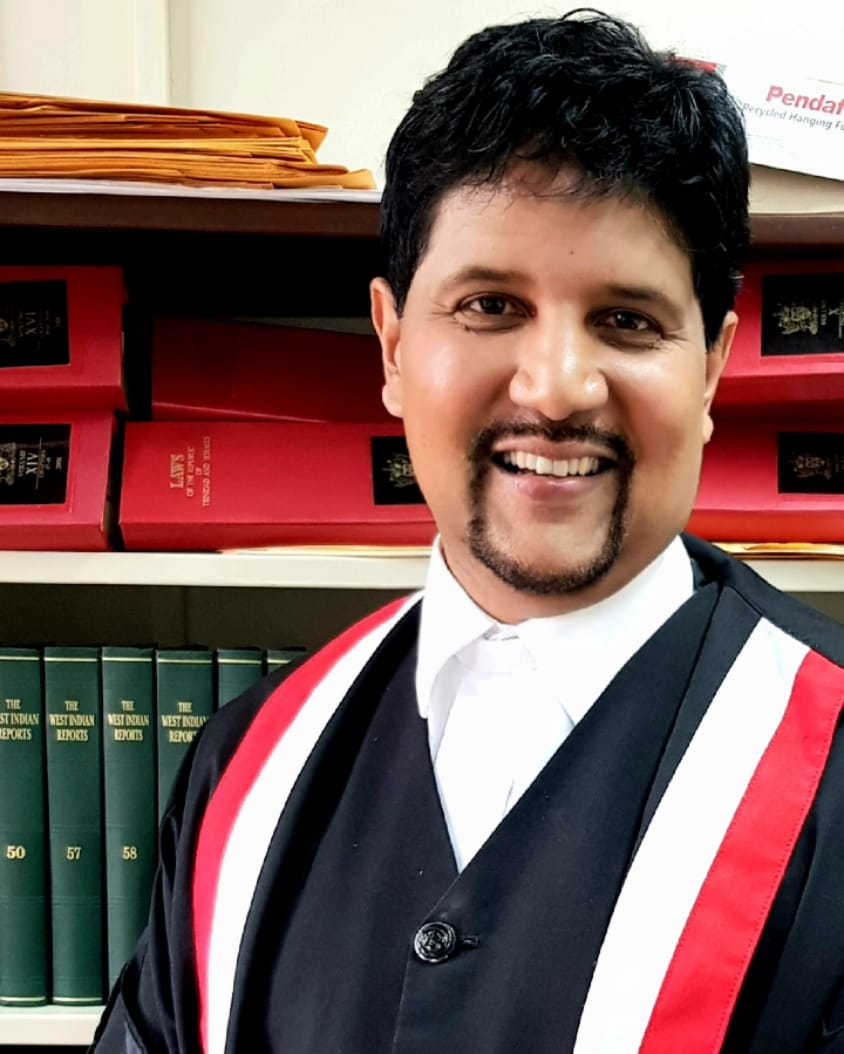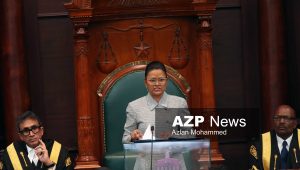By Prior Beharry
THE Trinidad and Tobago Police Service (TTPS) acted unlawfully when it refused a man to be a recruit because he had a ‘ninja star’ tattoo.
This was the ruling on Tuesday of Justice Frank Seepersad in a constitutional claim made by Dillon Ramraj who said he was refused on two occasions the right to fulfil his dream of becoming a police officer because of a tattoo between his thumb and index finger of his left hand.
According to the judgement, the tattoo depicted a small green shuriken, more commonly referred to as a ninja star. “This symbol is apparently synonymous with ninjas,” the judge said.
Ramraj attempted to become a policeman in 2019 and 2022 but was denied the opportunity to be recruited based on the tattoo.
Justice Seepersad said, “The facts of this case demonstrate with certainty that the tattoo policy, in its current manifestation, is discriminatory and ill-advised.
“There is an evident dichotomy and inequality of treatment with respect to potential recruits and serving officers in
relation to visible tattoos and there is no apparent justification for a blanket prohibition against visible tattoos.
“The Defendant has referenced or established no logical basis upon which the tattoo policy is premised and no evidence has been adduced or explanation proffered to establish any justiciable rationale for the existence of same.”
The judge said that in early 2019, the Ramjram visited the Police Training Academy at St James and was unsuccessful based on the TTPS policy regarding tattoos.
This policy was changed in 2020 when recruits were allowed to have a tattoo once it was covered when wearing a uniform.

In his case, Ramraj noted that police officers were not prevented from having tattoos once they passed out.
He listed a number of policemen with tattoos including acting Superintendent Roger Alexander the co-host of the TTPS Beyond the Tape on TV6. Other police officers with tattoos included Mervyn Eligon, Jeffery Jackman, Nirvan Singh Regimental and WPC Paul.
The judge said, “In accordance with the Recruitment and Selection Policy, Candidates shall not display body art and modification on the head, face, neck, ears, scalp, or hands.
“For the purpose of this Policy, the prohibited areas of the neck and hands are considered to be anything visible beyond the fastened collar or the sleeve cuff of the grey shirt.”
Prohibited were body art and modifications that were excessive, obscene, sexually explicit or advocate or symbolise sex, gender, racial, religious, homophobic, or political ideologies, ethnic or national origin discrimination. He said Ramraj was unsuccessful in trying to remove the tattoo.

Justice Seepersad said, “In a society, such as this, where citizens clamour in fear because they are under siege and plagued by rampant criminal conduct, it is difficult to comprehend why the recruitment process is concerned about the visibility of tattoos and its attention is not focused upon the character, integrity and ability of potential recruits.
“Having regard to the Government’s intent as expressed in its 2023 Budget presentation to triple the number of TTPS recruits in 2024, the requirement to remove pointless recruitment obstacles should be prioritised.
“Now, more than ever, a full complement of competent and capable police officers is required and an ‘all hands on deck approach’ is absolutely needed.”
He said Ramraj t was denied entry into the TTPS because of the mere presence of his relatively small and innocuous visible tattoo.
Justice Seepersad said, “As a consequence, he has been the victim of a tattoo policy which is characterized by a degree of arbitrariness, unreasonableness and fundamental unfairness.”
Justice Seepersad said, “Any objection to the presence of a tattoo should be premised upon an objective demonstration that the particular tattoo negatively impacts upon the officer’s ability to discharge his obligations or has a negative impact upon the public’s confidence in the TTPS. Such scenarios will necessarily be limited, especially given the forceful Generation Z movement which seeks to resile from traditional value systems and
codes of conduct.
It cannot be denied that many now hold a view which seeks to validate perspectives which reflect a liberal and all-inclusive sense of acceptance and fluidity, especially with regard to matters which involve behaviour, appearance and inter-personal interaction. The norms of the past are not necessarily accepted as the norms of the present. As a result, constitutional interpretation and the law must be dynamic and practical in its application and response. Laws are meant to govern and regulate a society and respect for the rule of law is only engendered when constitutional standards and the law are regarded by the majority as being relevant and relatable.”
Ramraj was represented by Anand Ramlogan, SC, Renuka Rambhajan, Jayanti Lutchmedial, Dr Che Dindial, Natasha Bisram and Ganesh Saroop while Coreen Findley and Nisa Simmons appeared for the Attorney General
![]()














